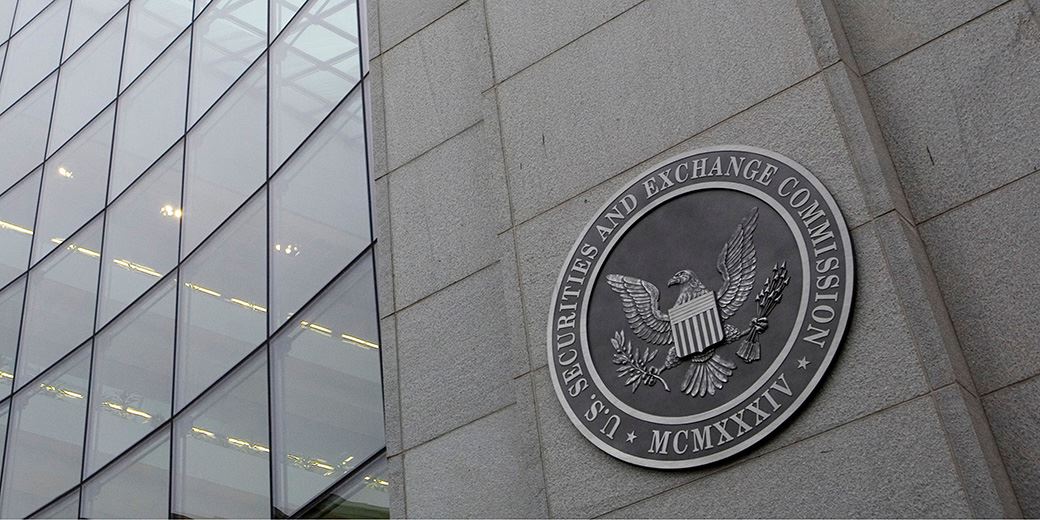Crypto Advocates Challenge SEC Authority Amid Regulatory Tensions
28.10.2024 13:00 1 min. read Kosta Gushterov
The SEC's stringent regulations on cryptocurrencies are drawing significant backlash, especially from Nic Carter, who criticized the agency's policies for pushing investors toward meme coins.
In response to Columbia Business School professor Omid Malekan’s claim that these coins represent a form of “economic populism” against venture capital-backed assets, Carter supported the notion that a more relaxed SEC could reduce interest in speculative investments.
Malekan argues that a Republican presidency might revive ICOs and stabilize the market, potentially reducing the appeal of meme coins. However, Carter contended that some desire for these assets will always persist.
Reactions within the crypto community varied, with analyst Murad suggesting that meme coin popularity is driven more by the increasing global money supply than by political factors. Kook dismissed Carter’s views, asserting that meme coins are simply a form of entertainment in the crypto space.
The SEC has ramped up enforcement since market collapses like FTX, launching 46 crypto-related actions in 2023 alone, targeting major exchanges such as Coinbase and Binance. Industry leaders are advocating for clearer regulations to navigate the uncertain landscape and foster innovation.
-
1
XRP: Technical Insights Point to a Potential Bullish Reversal
10.06.2025 19:00 2 min. read -
2
Altcoin ETF Summer? SEC Poised to Open Doors for Crypto Index Funds
12.06.2025 14:00 2 min. read -
3
Chainlink Edges Closer to Wall Street Integration, Says Co-Founder
12.06.2025 9:00 1 min. read -
4
Educational Company Enters Crypto Market with $500M Solana Reserve Plan
04.06.2025 16:00 1 min. read -
5
Solana ETF Approval Odds Soar as Wall Street Eyes Altcoin Season
12.06.2025 10:00 1 min. read
Pudgy Penguins Price Prediction: Traders See Explosive Move Ahead If PENGU ETF Gets Approved
Pudgy Penguins (PENGU) has outperformed other top meme coins today with gains of 8.5% in the past 24 hours as traders seem to be positioning for a huge move. Alongside Fartcoin (FARTCOIN), PENGU is one of the few tokens in this category that has booked 7-day gains. During this period, the official meme coin of […]
Nasdaq-Listed Firm Targets HYPE, Solana, and Sui for Reserve Strategy
Lion Group Holdings, a Nasdaq-listed financial services firm, has officially begun executing its ambitious $600 million cryptocurrency treasury strategy, announcing the completion of its first $2 million purchase of Hyperliquid (HYPE) tokens.
Altcoin Market May Be on the Verge of Major Rally, Analyst Suggests
A well-followed crypto analyst known for his accurate Bitcoin predictions is now turning his focus to the broader altcoin sector, signaling that a significant move could be brewing beneath the surface.
Trump-Linked Crypto Project WLFI Prepares for Token Listing and Stablecoin Audit
A crypto venture connected to the Trump family is quietly preparing for a major pivot—one that could take it from an obscure governance experiment to a publicly traded token with institutional backing.
-
1
XRP: Technical Insights Point to a Potential Bullish Reversal
10.06.2025 19:00 2 min. read -
2
Altcoin ETF Summer? SEC Poised to Open Doors for Crypto Index Funds
12.06.2025 14:00 2 min. read -
3
Chainlink Edges Closer to Wall Street Integration, Says Co-Founder
12.06.2025 9:00 1 min. read -
4
Educational Company Enters Crypto Market with $500M Solana Reserve Plan
04.06.2025 16:00 1 min. read -
5
Solana ETF Approval Odds Soar as Wall Street Eyes Altcoin Season
12.06.2025 10:00 1 min. read


